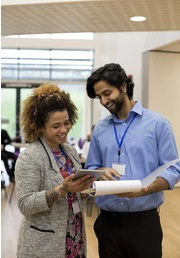What Are The Stages Of Teacher Professional Development?
Hello, fellow educators and knowledge enthusiasts. Today we’re exploring an area close to every teacher’s heart: professional development. Like our students, teachers too benefit greatly when learning new things. Bettering ourselves is a lifelong process that brings many rewards.
Have you ever considered what the journey of professional development for teachers? looks like? Join me as I break down its stages. They may prove not just insightful but truly transformative.
Curiosity Ignited:
Everything starts when that first spark appears, that moment when you realize there’s something new or different you want to learn or a skill you want to master. At this stage, curiosity reigns supreme: You attend workshops, webinars, or conferences that pique your interest—almost like embarking on a quest armed with thirsty ambition for knowledge and curiosity for discovery. This is the most important stage as it decides the journey that you will be undertaking and the lengths you will go for that.
Exploring New Territories:
It is always good for an educator or a teacher to look for sources and opportunities from where you can improve and improvise. Once curiosity strikes, you immerse yourself in the world of learning with gusto. At this stage of discovery, it’s all about discovery: trying out different techniques, strategies, and perspectives that could enhance your teaching toolbox. Attend training sessions, read books, and engage in discussions with colleagues in order to broaden your horizons and discover more possibilities for growth. Exploring new and effective ideas is always a great recipe for success and development. Always have a positive attitude towards change and learning.
Learning in Action:
Education doesn’t end once we gain knowledge; rather, its true purpose lies in applying what has been gained to real-life situations. At this stage of your professional growth journey, newfound skills and strategies are put directly into action in your classroom environment like brush strokes on canvas; you experiment with what you have learned until it fits both your teaching style and students’ needs.
Reflection and Adjustment:
Think back to when you stopped to admire your students’ progress. Now it is time for you to reflect upon your own journey, assessing what went well, what needs improvement, and how your approach may need to change with experience gained along the way. Continuous improvement starts here. The change that you feel in yourself would reflect in your students, your experience would reflect in your students and you would see a positive enhancement in their skills and capabilities.
Collaborative Growth:

Learning requires teamwork, so this stage focuses on collaborative growth. You engage with other educators to share successes and challenges as well as to draw upon each other’s experiences; it’s like having an invaluable support network that helps propel forward with shared insights and wisdom. Thus by helping each other, we help each other in collaborative growth. Sharing each other’s effective teaching methodologies and techniques would result in an overall improvement in the education sector. It would not only be beneficial to the teacher but would do wonders for the students too.
Broaden Your Horizons:
Once your confidence increases, it’s time to explore opportunities beyond your comfort zone. Take on leadership roles, mentor colleagues, whatever it takes, or explore specialized fields within your field. Anything to push boundaries and broaden horizons. Professional development thus enhances the inner abilities each educator has and implements that in your classes. Things that seemed impossible in the past become an easy possibility in the present as well as in the future.
Becoming a Guide:
As they say, teaching is the best way to learn, and this stage embodies that notion. No longer simply an active learner but now also acting as an active guide with colleagues, leading workshops, or mentoring younger educators, becoming an educator enables others to thrive. You can be a mentor or a guide to your fellow colleagues and also to each and every student that you teach or come in contact with. Thus not only implementing what you learned but also helping others along the way.
Innovation and Leadership:
At this point, you have achieved the level of expertise necessary for innovation. No longer satisfied with simply following best practices, you are creating new ones; designing teaching methods, conducting educational research, and leading initiatives to transform education as an entire field may all fall under this heading.
Lifelong Learning:
Professional development isn’t something that happens once and is then over; rather, it should be seen as an ongoing journey throughout your career. At this final stage of your development journey, honor your dedication to lifelong learning by actively seeking new knowledge, responding to changing trends, and remaining open to growth—an attitude that keeps you inspired and relevant throughout.
Technology Integration:
Technology has become an essential element of modern education. At this stage, the focus is on effectively incorporating tech into teaching practices and using digital tools, online resources, and educational software to enhance students’ learning experiences.
Assessment and Data-Driven Instruction:
this stage, assessments and data analysis are used to guide teaching strategies. Through this the teachers or educators learn how they can assess the progress of their students, they can assess the results, and make or design programs that cater to each student’s needs.
Specialization and Expertise:
After a teacher or an educator has acquired a good amount of experience in a particular field he or she can expertise in that field and acquire specialization also. This can be anything from special education, STEM subjects, or language acquisition. Becoming a specialist or expert in a field gives the educator an authoritative role in that subject and also they can play a pivotal role in shaping the future development of that particular field.
Conclusion:
Imagine this: an exciting tapestry of teacher professional development. Like teaching our students, this journey is engaging, exciting, and ever-evolving—something educators cherish every day as we work towards excellence for both learners and guides alike. My fellow educators, let’s embrace every step along this journey with open hearts and eager minds, knowing each step brings us closer to becoming outstanding educators ourselves.





